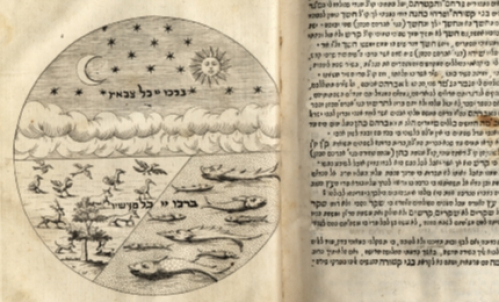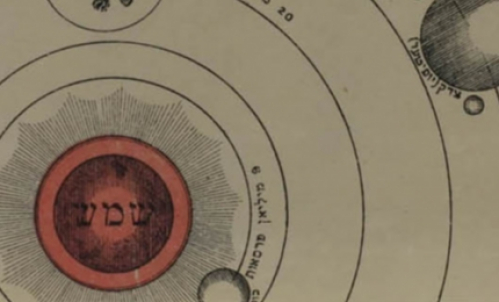What to Do When Hit by Lightning
by ROBERTA NEWMAN
The books being digitized for the Edward Blank YIVO Vilna Collections Project reflect both the lofty heights of Jewish intellectual life and the prosaic valleys of everyday Jewish life in the Russian Empire.
Refues ve-eytses (Remedies and Advice), or "How to Rescue People from Sudden Life-Threatening Accidents” must have seemed particularly useful when it first appeared in the Polish-language newspaper Kurier Litewski in 1836, when speedy access to emergency medical care was not, to put it mildly, to be taken for granted.

The newspaper must have seen a market for this sort of first aid advice among Jews and so translated into Yiddish and published it in Vilna as a booklet in 1848. It includes instructions on how to administer to victims of drowning, frostbite, smoke or carbon monoxide inhalation, hanging (!) or strangulation, fainting, poisoning, bites from rabid dogs or wolves, and lightning strikes:
If he is struck down inside, he must be immediately taken out into the fresh air, undressed and laid on his back, but with his head elevated.
Cover the entire body, except for the head and face, with moist earth, or leaves from a tree.
Moisten the head with cold water mixed with vinegar, blow into the mouth, rub the temples vigorously, and do the same, carefully, to the nose.
The book also includes tips on how to prevent the accidents in the first place. Those who cannot swim, should learn to; people should not fall asleep or get drunk in the snow or cook in dirty pots or eat food of uncertain provenance. And to avoid getting hit by lightning, it is a good idea to close all the windows, chimney flues, and doors in your house at the sight of a thick black cloud. There is no advice on how to avoid being attacked by a rabid dog or wolf.
This is one of the over 1,000 rare Yiddish and Hebrew books digitized so far at the Martynas Mažvydas National Library of Lithuania for the Edward Blank YIVO Vilna Collections Project.
Roberta Newman is YIVO’s Director of Digital Initiatives.



